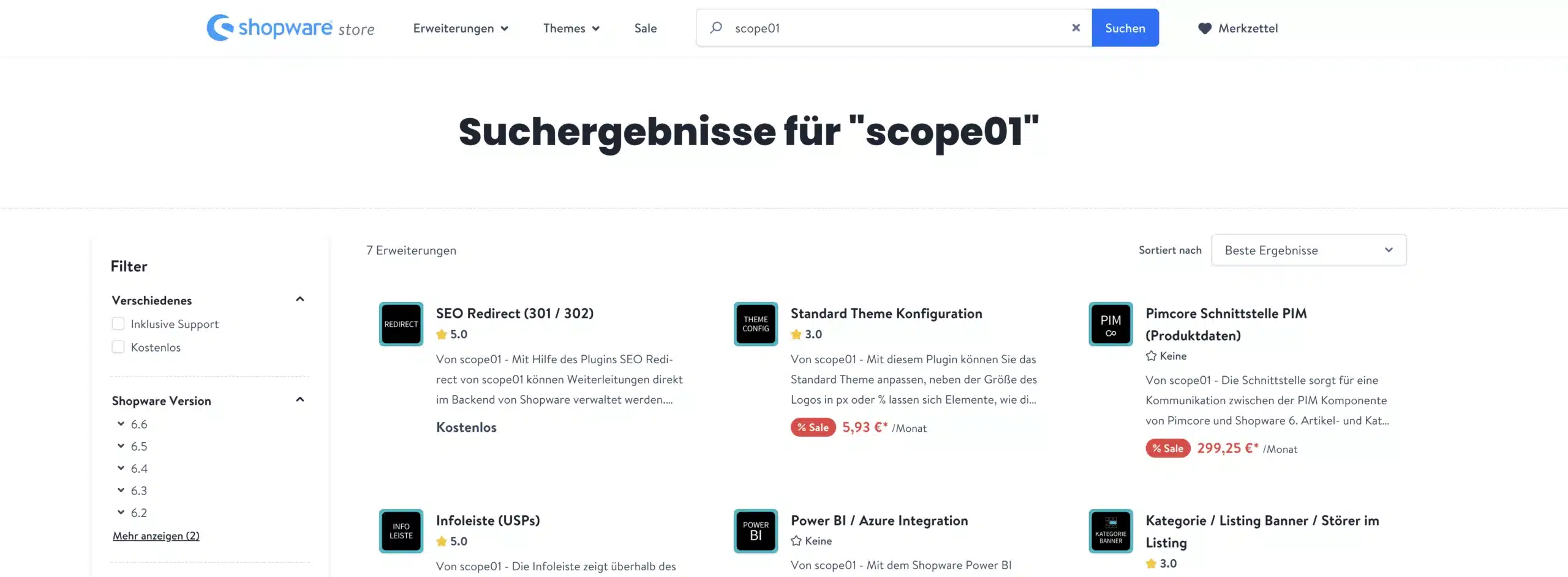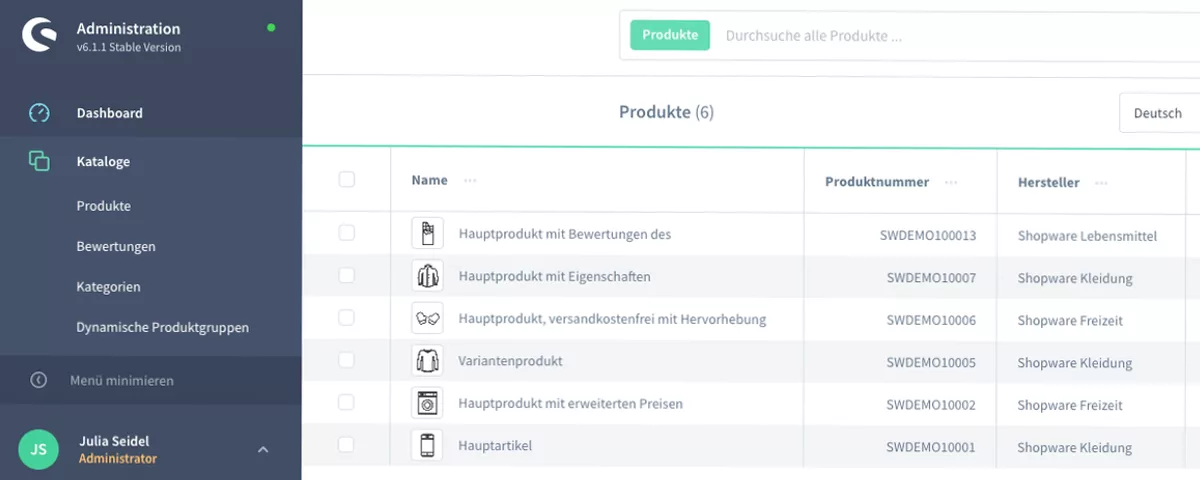On the other hand, not all plugins meet our quality standards. In this case, we usually recommend the development of a new plugin. From our own experience as a plugin manufacturer, we know what is important during development. This is because we develop complex plugins ourselves, for example for connecting Pimcore as the leading system for product data (PIM), media data (DAM) or content (CMS). Our developers attach great importance to plugin development:
- Code quality:
- Clean structure of the code with comprehensibility and logical structure.
- Clear structuring of the code into subscribers, models, services, controllers and helper classes with the help of meaningfully named folder structures.
- Implementation based on the code structures of the Shopware core.
- Error handling: Comprehensive error reporting in the form of e-mail notifications and extensive log files
- Logging: Extensive logging of processes mapped in plugins with the aim of traceability, especially in the event of problems.
- Compatibility: An extension should always be compatible with current Shopware and PHP/MySQL versions.
- Security:
- Validation of data input and output for security reasons
- Checking the plugins for possible security gaps
- Documentation: Both inline in the code and externally in the form of installation instructions, manuals, websites, etc.
- Update capability: From our experience, we usually have a clear picture of whether a plugin will survive the next Shopware update or not. With far-reaching consequences for your store. Because in the worst case, the plugin has to be removed. And a business-critical function is no longer available.
- Flexibility: Expandability for new requirements from the customer’s perspective
We always apply these points when evaluating Shopware plugins. Although plugins are initially checked by Shopware before uploading, these checks are usually no longer carried out for further updates.
Plugin reviews in the Shopware Store are often not helpful. On the one hand, only a few customers leave reviews, and on the other hand, the causes of problems often lie in the individual environment.













